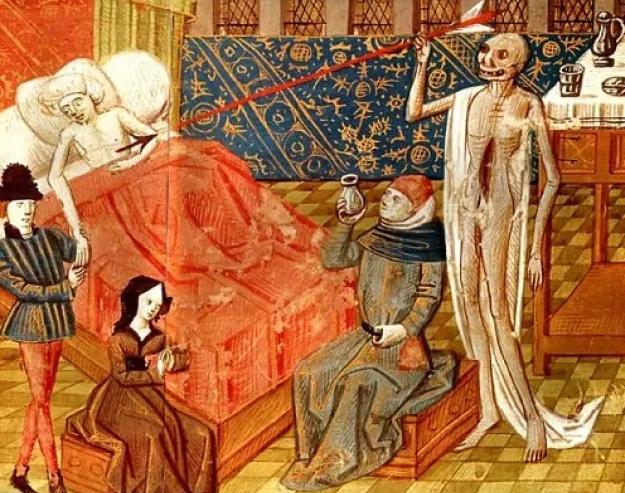Applying History in a Pandemic

Applying History in a Pandemic
Eleanor Russel
As a late medieval and sixteenth-century historian, opportunities to directly engage with the public are relatively slim. As the COVID-19 pandemic took hold, however, many medieval historians, and interested members of the public, began publishing articles about the Black Death, Europe’s worst epidemiological disaster. I saw this as an opportunity to do public-facing work, and submitted a proposal to The Conversation, an online newspaper that issues articles written by academics for general audiences.
Many op-eds that had been published comparing the Black Death and COVID-19 discussed the bubonic plague itself, focusing upon the spread of disease, the nature and failure of containment methods, and the mortality levels. Other articles discussed the economic ramifications of the pandemic on a macroeconomic scale. I saw a gap in the discussion and thought that I might be able to talk about large companies, which were the focus of my PhD research.
In my PhD research, and in my prior studies, I had found many references to new opportunities available for wealthier companies after the Black Death. Although many of the urban rich had been killed off by the plague, which had far higher mortality rates in the crowded towns than in the countryside, later generations could benefit from the new commercial and also socio-political circumstances.
Although the modern economy, and the role of multinational corporations (which did not exist in any form in the fourteenth century) within it, is completely different from the late medieval one, I saw some general parallels between the very long-term opportunities for wealthy companies in the decades after the Black Death and the immediate benefits accrued by some modern corporations. In the current pandemic, multinationals have been far more able than smaller firms to adjust to the economic shock of the disease and the lockdown. Some, such as Amazon, have even benefited.
I proposed an article on how richer companies and merchants could, in the long term, benefit from the economic and political changes caused by the Black Death, with very loose comparisons made to COVID-19. The editors accepted my proposal and asked me to partner with an expert on modern companies, Professor Martin Parker from the University of Bristol, to write a longer article for their Insights series.
The writing process was very different from my experience in writing single-author articles and a PhD. My co-author proposed that we each write a paragraph on the economic outcomes, the governmental changes, and the attitude of the public. Given the lockdown, we wrote entirely separately, emailing back and forth segments.
Also, unlike an academic paper, the article was not peer-reviewed by other historians. This caused a few problems, as some readers thought that I was challenging the standard argument that the Black Death led to a redistribution of wealth and, also, that I was suggesting that large companies had grown in size in the aftermath of the Black Death. Without the input of academic reviewers, some ambiguities of phrase and a few typos, such as my erroneous use of the word ‘corporation’ to cover medieval as well as modern companies, had been published. Following feedback, I made revisions to the article. This was sometimes a difficult process, so I strongly urge any student thinking about writing an op-ed to ask for feedback from other historians before publishing.
During the writing process, The Conversation asked me if I would mind providing my research notes for their upcoming podcast on the Black Death. I agreed and asked if it would be possible for me to speak on the podcast as well. I thought that this was rather pushing my luck, but they agreed.
Shortly after the article was published, we were contacted to say that it had won the Stanton Foundation Prize, an award for ‘the best new Applied History article or op-ed that illuminated the COVID-19 crisis’. This was a complete surprise! The article was also republished on some other platforms, including the BBC, where it was seen by a BBC2 film group. They contacted me to ask if I’d be willing to appear in a new documentary about the impact of the Black Death upon culture. I naturally jumped at the opportunity, although I discovered that speaking on television is nowhere near as easy as it looks.
I’m not sure what the moral of this story is, but I would urge any MPhil or PhD students who see a chance to contribute to the public debate to do so. Be prepared for rejection and for negative feedback, and make sure that you seek out help and advice from other historians along the way (being too shy to do this was definitely my greatest error). That being said, it’s a fantastic opportunity, and a potentially very rewarding experience.
